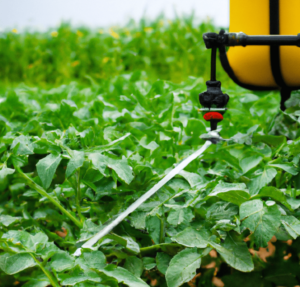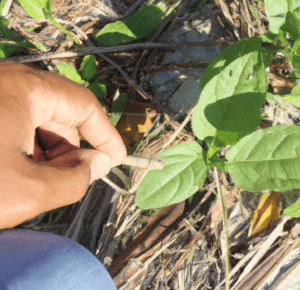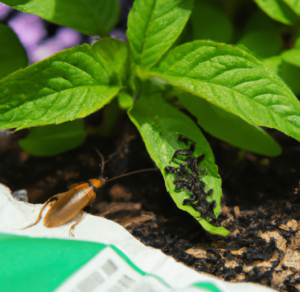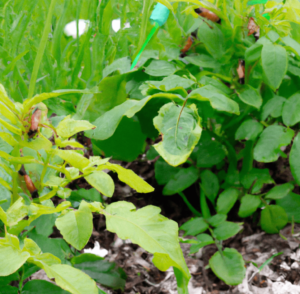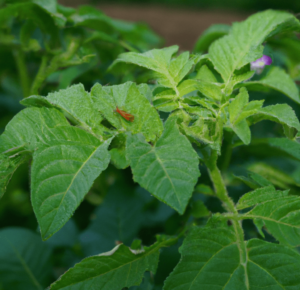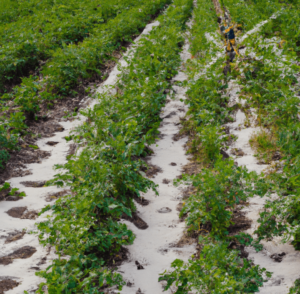In order to sustain life and provide food, agriculture is essential. In order to boost crop productivity and safeguard crops against pests, chemical fertilizers, and pesticides are frequently utilized in agriculture. However, over usage of these chemicals has negative effects on the environment that endanger our ecology. Chemical fertilizers are compounds that are incorporated into the soil to supply plants with vital nutrients. These fertilizers contain a variety of minerals, including potassium, nitrogen, and phosphorus, which are crucial for plant growth. Also, pesticides are chemicals that are used to defend crops against pests and diseases. However, there are the environmental impacts of overuse of chemical fertilizers and pesticides to think about.
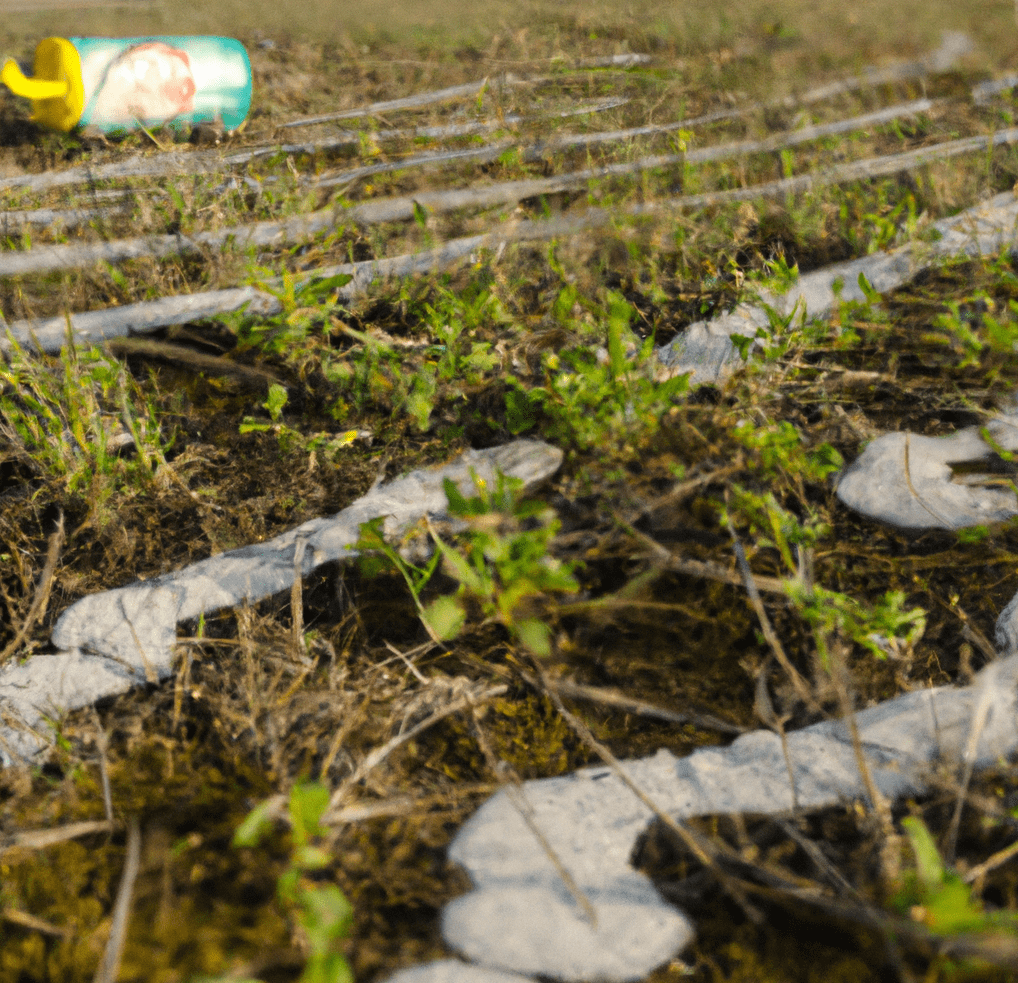
Environmental Impacts of Chemical Fertilizers
Chemical fertilizers used in agriculture can degrade soil because they affect soil chemistry, reducing soil fertility and accelerating erosion. Additionally, extra fertilizer can spill over into surrounding waterways, contaminating the water and endangering aquatic life. Environmental effects from chemical fertilizer manufacturing are substantial. The environmental impacts of overuse of chemical fertilizers and pesticides include the production process uses a lot of energy and emitting a lot of greenhouse gases, which adds to climate change. The mining and processing of many of the raw materials used in fertilizer manufacturing can have a severe influence on nearby ecosystems and populations.
Eutrophication of Water Bodies
When water bodies acquire an excessive amount of nutrients, the result is eutrophication, which promotes excessive plant and algae development. This procedure is frequently influenced by local farming methods. A factor in eutrophication is agricultural runoff, which can contaminate waterways with pesticides and fertilizers. Eutrophication can have a negative impact on agriculture yields, groundwater supplies, and aquatic ecosystem health in addition to other things. Fish and other aquatic creatures can be harmed by low oxygen levels caused by an abundance of nutrients in the water.
Aside from inhibiting the growth of underwater vegetation and upsetting food webs, the growth of algae and other aquatic plants can also reduce light penetration in the water. The ecosystem and water quality can be harmed by pesticides used in agriculture. There may be health problems for both people and animals if these pollutants contaminate drinking water supplies and leach into the groundwater. Agricultural practices must be regulated in an environmentally conscious way if the effects of eutrophication are to be lessened. This can be done by cutting back on pesticide use, limiting agricultural runoff through best management practices, and putting in place measures to stop the environmental impacts of overuse of chemical fertilizers and pesticides.
Soil Acidification and Nutrient Imbalances
In agriculture, nutrient imbalances and soil acidity are critical issues since they can negatively affect crop health and the environment. The environmental impacts of overuse of chemical fertilizers and pesticides, which can make the soil pH overly acidic and throw off the balance of vital nutrients, is a common contributor to these problems. Because it’s more challenging for plants to acquire vital nutrients from the soil, soil acidification can be a particular challenge for crops.
Stunted growth, decreased yields, and lower-quality crops might result from this. In extreme situations, soil acidity might even render a plot of land completely unfit for cultivating crops. Soil acidity can have an adverse effect on groundwater in addition to crops. Agrochemicals can seep into groundwater sources and contaminate them when they are absorbed into the soil. For nearby towns that depend on groundwater for drinking and irrigation, this might have catastrophic repercussions.
Farmers and agricultural groups are encouraged to use fertilizers, insecticides, and other chemicals carefully to reduce the effects of soil acidity and nutrient imbalances. This can entail using less of these goods or switching to something less damaging to the soil and ecosystem. To assist preserve the health of their soil and stop acidification, farmers can also adopt techniques like crop rotation and cover cropping.
Loss of Biodiversity
The environmental impacts of overuse of chemical fertilizers and pesticides includes the loss of biodiversity. The loss of species upsets ecological equilibrium, altering soil composition and nutrient cycles, which can have a detrimental effect on crop output.
The loss of natural habitats and the decline of pollinator and predator species are the results of intensive farming practices like monoculture and the use of pesticides. As a result, crops are now under more insect and disease pressure, which lowers their yield and quality. Farmers and researchers are looking for ways to incorporate biodiversity into agricultural systems as a solution to this problem.
These techniques, which attempt to preserve and improve biodiversity by supplying habitats for wildlife and encouraging a healthy soil environment, include agroforestry, intercropping, and conservation tillage. By doing this, these techniques can also aid in lowering the demand for chemical inputs, enhancing the fertility and health of the soil, and raising crop yields.
Greenhouse Gas Emissions
The use of fertilizers, the raising of animals, and the growing of crops are only a few examples of the various activities that result in agriculture’s significant contribution to greenhouse gas (GHG) emissions. These emissions may significantly affect the ecosystem and contribute to climate change and global warming. The largest source of GHG emissions in agriculture is crop production. This is partly because agricultural inputs like fertilizer, which can release nitrous oxide into the atmosphere, are used.
Additionally, the environmental impacts of overuse of chemical fertilizers and pesticides can increase greenhouse gas emissions because some of these substances release strong greenhouse gases like chlorofluorocarbons (CFCs). Another substantial source of GHG emissions in agriculture comes from the production of livestock, notably because of the release of methane during digestion. GHG emissions may also be increased by inputs utilized in the production of livestock, such as the production of feed and the management of manure.
Agricultural GHG emissions must be reduced if we are to lessen the effects of climate change. This can be done in a number of ways, such as by using more sustainable and effective farming techniques, using fewer pesticides and fertilizer, and managing livestock waste better.
Environmental Impacts of Pesticides
The environmental impacts of overuse of chemical fertilizers and pesticides include that they can have detrimental effects on the health of the soil, the quality of the water, and non-target species, according to research. The effect of pesticides on the health of the soil is one of the main issues with their use. Pesticide contamination can have an impact on the structure, nutrient balance, and microorganisms of the soil. This may result in less fertility, less ability to retain water, and more erosion.
These effects may eventually lead to lower crop yields and less sustainability in agricultural systems. Additionally, studies have shown that pesticides can contaminate drinking water sources and have a harmful effect on aquatic ecosystems by leaking into groundwater and surface waters. By lowering their populations and upsetting their food chains, pesticides can harm non-target animals including birds, fish, and beneficial insects. Additionally, using pesticides can cause bug populations to evolve resistant to the poisons. As a result, the need for more pesticides and the production of more harmful chemicals may arise, worsening the effects on the environment.
Pollution of Air and Water
Pollution of the air and water is a major issue that affects the entire world. It can be caused by a variety of sources, including agricultural practices, industrial production, and human activities. In agriculture, the use of fertilizer has been linked to water pollution. The excess nutrients in fertilizers can run off into nearby rivers and lakes, causing an overgrowth of algae that depletes the water of oxygen and creates “dead zones” where marine life can no longer survive.
This problem is especially pronounced in China, where intensive agriculture and high levels of fertilizer use have led to widespread water pollution. On the other hand, industrial production and manufacturing also contribute to air and water pollution. For example, factories release harmful chemicals into the air and water, which can have negative impacts on human health and the environment. Despite the environmental impacts of overuse of chemical fertilizers and pesticides, the use of fertilizer and industrial production is unlikely to decrease in the near future. The global demand for food and consumer goods continues to grow, and many countries are focused on increasing crop yields to meet this demand. As a result, the challenge of reducing pollution from agricultural and industrial activities will require a combination of new technologies, stricter regulations, and changes in consumer behavior.
Poisoning of Non-target Organisms
the environmental impacts of overuse of chemical fertilizers and pesticides include that it may also have detrimental effects on the organisms that are not the target. Pesticides can contaminate groundwater, which can cause aquatic life and other species that ingest this water to become poisoned.
Pesticides can have a variety of detrimental impacts on non-target creatures, including mortality, reduced reproduction, and changed behavior. The agricultural environment may be negatively impacted by pesticide poisoning’s effects on creatures that are not its intended targets. As an illustration, crop yields may suffer if pesticide exposure causes a decline in the population of helpful insects like honeybees, which restrict pollination. Similar to the last example, if a population of predators such as birds of prey is impacted, it may result in an increase in insect activity, further lowering crop yields.
Contamination of Food and Drinking Water
The environmental impacts of overuse of chemical fertilizers and pesticides include being a threat to food and water. Unmanaged fertilizers and pesticides can pollute food and drinking water, which could have negative health effects on those who consume them. Pesticides and fertilizers can seep into the earth and contaminate supplies of groundwater used to make drinking water.
For many communities, groundwater is an essential source of drinking water, and its contamination can have significant negative impacts on public health. Drinking contaminated water can cause a number of health difficulties, such as cancer, brain impairment, and digestive disorders. In addition, the chemicals can directly contaminate crops through drift or runoff, leaving trace amounts of these substances in the food we eat. Consuming contaminated food can result in a number of health issues, such as cancer, hormone imbalance, and birth deformities.
Effects on Pollinators and Other Beneficial Insects
The populations and behavior of pollinators and other helpful insects, which are essential to the health and production of crop ecosystems, can be significantly impacted by agricultural practices. Healthy populations of these insects can be encouraged, and adequate management of the environment and methods can help to maintain vital ecosystem functions including pollination, pest control, and nutrient cycling.
Intensifying farming techniques and converting natural landscapes into croplands have reduced the availability of the flowers, nesting sites, and other resources these insects need to thrive, which is one of the main effects of modern agricultural practices on pollinators and other beneficial insects.
Furthermore, the environmental impacts of overuse of chemical fertilizers and pesticides have the potential to kill these insects directly, interfere with their behavior and reproduction, and indirectly impact the availability of food supplies. Adopting strategies that enhance pollinators’ health and well-being is crucial if we want to reduce the detrimental effects of agriculture on pollinators and other useful insects.
The usage of pesticides can be reduced, blooming strips and other sources of nectar and pollen can be planted in and around crop fields, natural habitats can be preserved, and the benefits of using biodegradable pest control methods can be used to reduce the need for dangerous chemicals. Farmers may promote the resilience and production of their crops and safeguard the long-term viability of agricultural ecosystems by encouraging a healthy and diversified environment for pollinators and other beneficial insects.
Alternative Methods for Maintaining Crop Health
The environmental impacts of overuse of chemical fertilizers and pesticides are a threat but there are alternatives. Farmers are looking into alternate strategies for preserving crop health and guarding against pests and illnesses in light of these worries such as natural weed control methods as well as:
- IPM: IPM (Integrated Pest Management) is a method of crop management that reduces the number of pesticides used and lessens their environmental impact. It makes use of biological controls, crop rotation, and the sparing use of pesticides.
- Organic Agriculture: To maintain crop health and control pests and diseases, organic agriculture uses natural processes including companion planting and the employment of helpful insects. Since no artificial fertilizers or pesticides are used in this method, less damage is done to the environment and groundwater.
- Cover Cropping: To enhance soil health and control weed growth, cover cropping includes planting a secondary crop, such as rye or clover, between primary crops. Additionally, this approach can increase agricultural yields and lessen the demand for pesticides.
- Crop Diversity: Since pests and illnesses are sometimes specialized to particular crops, growing a range of crops on a farm might help to lessen pest and disease load. Additionally, this diversity can enhance the condition of the soil and increase agricultural production.
Integrated Pest Management (IPM)
A sustainable method of managing pests known as integrated pest management (IPM) takes into account the health of crops, the environment, and human health. In order to prevent pests and maintain a healthy crop, IPM aims to minimize the use of pesticides and encourage the use of natural measures like fertilization and soil management.
Regular soil testing and monitoring can also assist find and correct any nutrient deficiencies that might be a factor in pest issues. IPM used pesticides sparingly and selectively, only as a last resort. IPM practitioners can choose the most appropriate and efficient approaches for pest control by closely monitoring crop health and taking into account the biology and behavior of pests.
Utilizing the least harmful pesticides on the market and administering them in a way that reduces exposure to both humans and the environment are frequent steps in this process. The preservation of groundwater is a crucial factor in IPM. Pesticides should be used sparingly and in accordance with all label directions since they may contaminate groundwater. To make sure that groundwater is not polluted with pesticides or other pollutants, it should also be routinely analyzed.
Organic Farming Methods
The utilization of natural processes to improve crop development and fertility is emphasized in the agricultural production approach known as organic farming. Crop rotation, composting, and natural pest management is methods that organic farmers use in place of synthetic fertilizers and pesticides to provide crops with the nutrients they need and keep pests away.
In addition to boosting soil health and protecting wildlife habitats, organic farming aims to promote a diversified and balanced environment. The long-term health of the soil and environment, as well as the welfare of individuals who cultivate and consume the crops, are given top priority in this form of farming. Farmers must adhere to stringent rules and regulations in order to keep their organic certification, such as using only permitted natural inputs and avoiding the use of genetically modified organisms (GMOs).
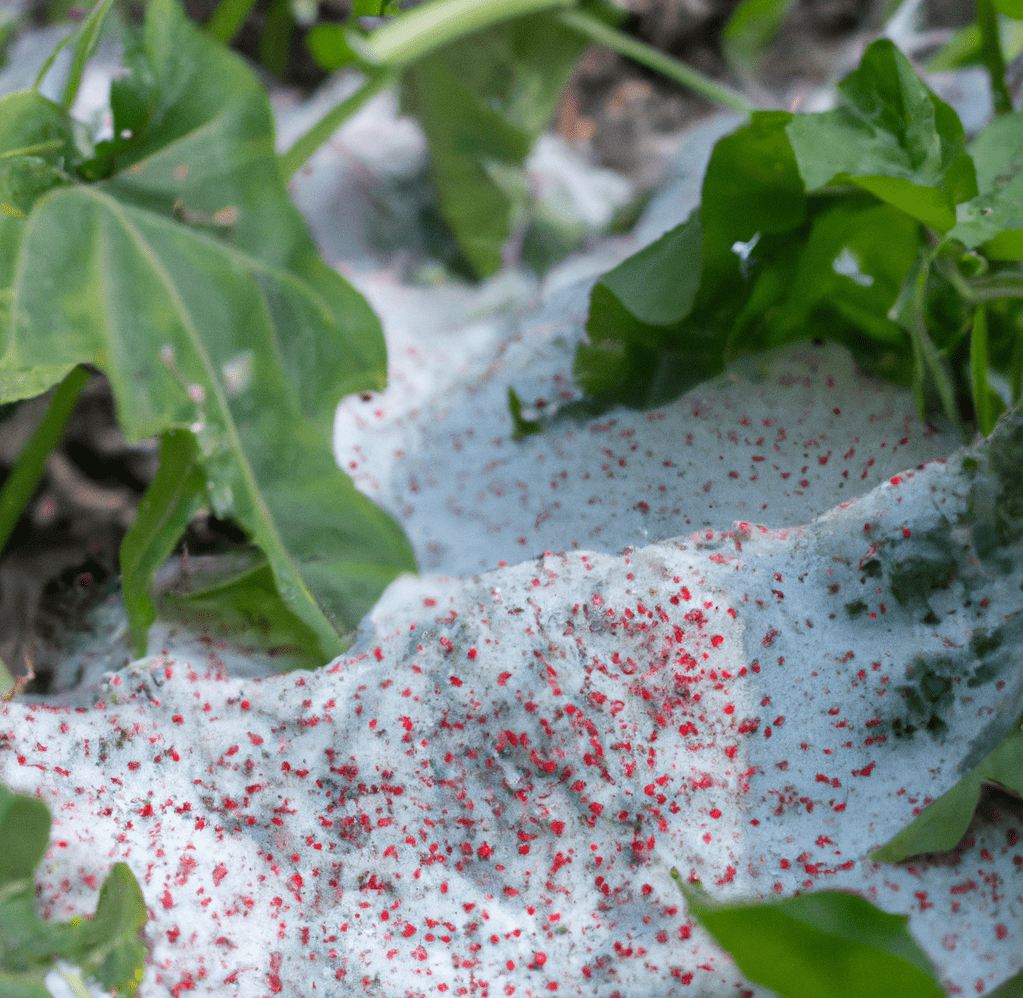
Biological Control
Agriculture uses biological management to manage pests and diseases in crops, which reduces the need for chemical inputs. The goal is to control pests by using diseases, parasites, and natural predators. Due to the rising demand for organic and sustainable food production, this method is becoming more and more popular as an eco-friendly substitute for conventional pesticides. The application of biological control entails locating the insect’s natural enemies and releasing them into the crop to reduce the pest population. For instance, parasitic wasps can be employed to manage caterpillars, and ladybugs are frequently used to control aphids.
Crop damage is decreased as a result of utilizing biological management, as is the requirement for chemical inputs. Compared to conventional chemical approaches, biological control has a number of benefits, such as a less negative impact on the environment, enhanced sustainability, and reduced reliance on artificial pesticides. It is crucial to remember that biological control is not always sufficient for pest management and may need to be combined with additional strategies like crop rotation and physical barriers. In addition, elements like the climate and the presence of other pests may have an impact on how effective biological management is.
Cultural Control
The term “cultural control” refers to strategies and tactics used to control pests and diseases in crops without the use of chemicals. This kind of control relies on knowledge of and control over crop development, soil health, and the environment. Because research enables a deeper comprehension of the intricate relationships between plants, soil, and the surrounding ecosystem, it’s essential for the development and improvement of cultural management strategies.
Keeping the soil in which crops are grown healthy is one of the fundamental facets of cultural control. In order for plants to develop robustly and withstand pressure from pests and disease, healthy soil is crucial. Research is necessary to establish strategies that promote soil health, such as the use of cover crops, composting, and reduced tillage, as well as to identify the ideal soil conditions for certain crops.
Controlling the growth environment to lessen pest and disease burdens is another part of cultural control. This may entail choosing crop varieties that are resistant to particular pests and diseases, altering planting and harvesting times to avoid periods of high pest pressure, and using companion planting to break the life cycles of pests. In these fields, research is crucial since it offers the knowledge required to choose the right crops and management strategies.
Bottom Line: The Environmental Impacts of Overuse of Chemical Fertilizers and Pesticides
In agriculture, chemical fertilizers and insecticides are frequently employed to promote crop growth and safeguard crops from pests and diseases. But the environmental impacts of overuse of chemical fertilizers and pesticides have long been a cause for concern.
Chemical fertilizers have the potential to deteriorate the soil, raise soil salinity, and taint groundwater. On non-target animals, the food chain, and wildlife, pesticides can have harmful effects. Additionally, repeated exposure to these substances might result in the emergence of pests and illnesses that are resistant to them, decreasing their long-term efficacy.
For the sake of ecology, it is crucial that agricultural practices employ fewer toxic pesticides and fertilizers. As a result, there will be less soil deterioration, less groundwater contamination, and fewer hazardous impacts on wildlife and unintended species from these chemicals. Additionally, minimizing the usage of chemical pesticides and fertilizers can aid in preventing the emergence of disease and pest resistance, protecting these substances’ potency for future generations.
It’s crucial to use alternate ways of crop health maintenance in order to lessen the damaging effects of chemical fertilizers and pesticides on the ecosystem. The use of organic fertilizers, integrated pest management, and other environmentally friendly agricultural techniques fall under this category. These alternative techniques can lessen the negative effects of agriculture on the environment while maintaining the health of the crop.
The Environmental Impacts of Overuse of Chemical Fertilizers and Pesticides FAQs
How are chemical fertilizers used in agriculture? What are they?
Chemical fertilizers are substances that are mixed into the soil to provide plants with the nutrients they need to grow, including potassium, nitrogen, and phosphorus. They are frequently applied to increase crop productivity in agriculture.
What are pesticides and how do they apply to farming?
Chemicals known as pesticides are employed in agriculture to protect crops from pests and illnesses.
What are the effects of chemical fertilizers on the environment?
Because they alter the chemistry of the soil, chemical fertilizers used in agriculture can induce soil degradation by lowering soil fertility and hastening erosion. Extra fertilizer can leak into nearby waterways, polluting the water and putting aquatic life in peril. The manufacture of chemical fertilizers and pesticides uses a lot of energy and emits a lot of greenhouse gases, which contributes to climate change. This has an adverse effect on the ecosystem. Many of the raw materials mined and processed for fertilizer production might have a negative impact on the ecosystems and inhabitants in the area.
Eutrophication: what is it?
Eutrophication, which can have a detrimental effect on agricultural harvests, groundwater supplies, and the health of aquatic ecosystems, is the excessive development of plants and algae in water bodies as a result of an overabundance of nutrients.
How can eutrophication result from the overuse of chemical fertilizers and pesticides?
Eutrophication is a result of agricultural runoff, which can pollute streams with pesticides and fertilizers.
How do nutrient imbalances and soil acidity result from the misuse of chemical fertilizers and pesticides?
When chemical fertilizers and pesticides are used excessively, the pH of the soil can become too acidic and the balance of essential nutrients can be upset, which can have a severe impact on crop health and the environment.
What effects does agriculture’s loss of biodiversity have?
Changing soil composition and nutrient cycles brought on by the loss of biodiversity in agriculture can disturb the ecological balance and reduce agricultural yield. Due to intensive farming methods like monoculture and the use of pesticides, which can reduce crop productivity and quality, natural habitats are being lost, and pollinator and predator species are declining.
What role does agriculture play in the production of greenhouse gases?
Through a variety of processes, including the use of fertilizers, the raising of animals, and the cultivation of crops, agriculture contributes to greenhouse gas emissions. The main source of GHG emissions in agriculture comes from crop production because agricultural inputs like fertilizer can cause nitrous oxide to be released into the environment. Another significant source of GHG emissions in agriculture is the raising of animals, particularly the release of methane during digestion.
What is IPM?
A sustainable approach to pest control called integrated pest management (IPM) considers the health of crops, the environment, and human health. IPM employs pesticides sparingly and selectively, and only as a last resort. IPM attempts to reduce the use of pesticides and increase the use of natural techniques like fertilization and soil management.
What is organic agriculture?
An agricultural production strategy known as organic farming places a strong emphasis on using natural processes to enhance crop development and fertility. To give crops the nutrients they require and keep pests at bay, organic farmers utilize techniques like crop rotation, composting, and natural pest management in place of synthetic fertilizers and pesticides. Organic farming prioritizes the long-term health of the soil and environment, as well as the welfare of the people who cultivate and consume the crops, in order to maintain a diversified and balanced environment.
Biological control: What is it?
It is possible to manage pests and diseases in crops using biological control, which eliminates the need for chemical inputs by using parasites, illnesses, and natural predators. This technique is gaining popularity as an environmentally friendly alternative to traditional insecticides. In order to lower the pest population, biological control is used by detecting the insect’s natural enemies and releasing them into the crop.
Cultural control: What is it?
Pest and disease management in crops without the use of chemicals is referred to as cultural control. Knowledge of and control over crop development, soil quality, and the environment are necessary for this type of control. Cultural control includes maintaining good soil where crops are grown and managing the growth environment to reduce pest and disease burdens.
Why is it vital to maintain crop health using alternative methods?
The ecology may suffer if chemical fertilizers and insecticides are used excessively. Utilizing alternative methods of crop health care, such as the use of organic fertilizers, integrated pest management, and other ecologically friendly agricultural practices, is crucial to reduce these consequences. These alternate methods can preserve the health of the crop while reducing the detrimental effects of agriculture on the environment.


